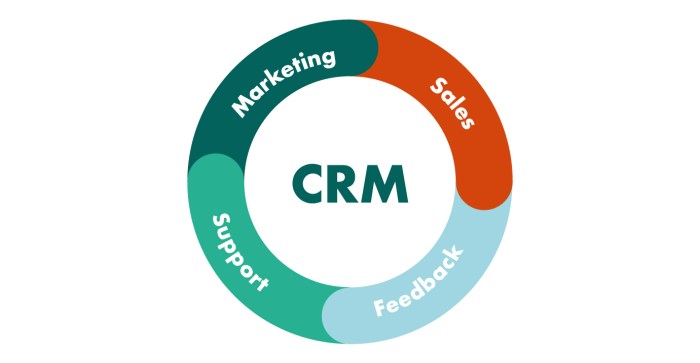Construction CRM Software
Constructing Success: Exploring the Dynamics of Construction CRM Software
In the fast-paced world of construction, where timelines are tight and coordination is key, the role of effective project management cannot be overstated. Enter Construction CRM Software – a game-changer in the realm of construction management. In this comprehensive guide, we delve into the intricacies of Construction CRM Software, uncovering its functionalities, benefits, implementation strategies, and the transformative impact it wields in the construction industry.
Understanding Construction CRM Software
Construction CRM Software, tailored specifically for the construction industry, serves as a centralized platform for managing customer relationships, project workflows, communication channels, and business processes. Unlike generic CRM solutions, Construction CRM Software is engineered to address the unique challenges and requirements of construction projects, including complex project timelines, multi-stakeholder collaborations, and resource management.
Unveiling the Benefits of Construction CRM Software
1. Enhanced Project Visibility and Transparency:
Construction CRM Software provides stakeholders with real-time visibility into project progress, milestones, and resource allocation. Through intuitive dashboards and reporting tools, project managers can monitor project health, identify bottlenecks, and make data-driven decisions to optimize project outcomes.
2. Streamlined Communication and Collaboration:
Facilitating seamless communication and collaboration among project teams, subcontractors, and clients is paramount in construction projects. Construction CRM Software offers robust communication channels, including email integrations, instant messaging, and document sharing capabilities, ensuring stakeholders remain aligned and informed throughout the project lifecycle.
3. Efficient Lead and Opportunity Management:
From lead generation to project closure, Construction CRM Software streamlines lead and opportunity management processes, enabling construction firms to track leads, qualify prospects, and convert opportunities into successful projects. By centralizing lead data and automating follow-up workflows, construction firms can nurture client relationships and drive business growth.
4. Optimized Resource Allocation and Scheduling:
Effective resource management lies at the heart of successful construction projects. Construction CRM Software facilitates optimized resource allocation, scheduling, and workforce management, ensuring that projects are adequately staffed and equipped to meet project deadlines and quality standards.
5. Comprehensive Project Documentation and Compliance:
Construction projects involve extensive documentation and compliance requirements, ranging from contracts and permits to safety regulations and quality standards. Construction CRM Software provides a centralized repository for storing and managing project documentation, streamlining compliance processes and mitigating legal risks.
Exploring Key Features of Construction CRM Software
1. Project Management:
From project planning and scheduling to budgeting and resource allocation, Construction CRM Software offers robust project management functionalities tailored to the unique requirements of construction projects.
2. Client Relationship Management:
Nurture client relationships and enhance customer satisfaction with comprehensive client relationship management tools, including client profiles, communication logs, and project history tracking.
3. Estimating and Quoting:
Streamline the estimation and quoting process with built-in estimating tools, bid management functionalities, and automated quotation workflows, enabling construction firms to generate accurate and competitive bids for prospective projects.
4. Document Management and Collaboration:
Simplify document management and collaboration with cloud-based document repositories, version control features, and document sharing capabilities, facilitating seamless collaboration among project stakeholders.
5. Mobile Accessibility:
Empower field teams and on-site personnel with mobile accessibility features, allowing them to access project information, update task statuses, and communicate in real-time from any location, enhancing productivity and responsiveness.
Implementing Construction CRM Software: Best Practices
1. Define Clear Objectives and Success Criteria:
Align CRM implementation efforts with strategic business objectives and key performance indicators (KPIs), ensuring that the chosen Construction CRM Software addresses the specific needs and goals of the organization.
2. Invest in User Training and Adoption:
Provide comprehensive training and ongoing support to users at all levels of the organization, emphasizing the benefits and usability of the Construction CRM Software. Foster a culture of user adoption and accountability to maximize ROI and system effectiveness.
3. Customize and Configure for Success:
Tailor the Construction CRM Software to align with existing workflows, processes, and terminology within the organization. Leverage customization and configuration options to optimize system usability and relevance to the construction industry.
4. Foster Integration and Data Integrity:
Explore integration capabilities to seamlessly connect Construction CRM Software with other essential business systems, such as accounting software, project management tools, and ERP systems. Ensure data integrity and consistency across integrated platforms to avoid silos and discrepancies.
5. Continuously Evaluate and Improve:
Regularly assess the performance and usability of the Construction CRM Software through user feedback, system audits, and performance metrics. Identify areas for improvement and optimization to ensure that the Construction CRM Software evolves in tandem with changing business needs and industry trends.
In Conclusion
Construction CRM Software stands as a cornerstone in the digital transformation of the construction industry, empowering firms to streamline operations, enhance project outcomes, and foster enduring client relationships. By embracing Construction CRM Software and adhering to best practices in implementation and utilization, construction firms can navigate the complexities of modern construction projects with confidence, efficiency, and excellence.

